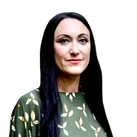There’s one thing Prince William didn’t mention in his speech about Diana and the BBC
William quite rightly condemned the treatment of his mother during the Bashir interview – but what about the role of the royal family?

In a move rarely seen by the royals (though one that is now becoming increasingly common these days, at least among its younger members) Prince William spoke out publicly last night to condemn the treatment of his mother, Princess Diana, at the hands of the BBC.
He was moved to talk given the damning findings of an inquiry looking into Martin Bashir’s 1995 Panorama interview with her, and called for the episode never to be broadcast again; given it “contributed significantly to her fear, paranoia and isolation”.
But while watching his emotive and impassioned two-minute speech in the wake of the Dyson report, I couldn’t help thinking there was one thing he didn’t say: and it’s something that, conversely, his brother Harry has spoken about extensively in recent months – the role of the royal family.
For while William quite rightly placed blame at the feet of the BBC for using false documents to obtain access to his mother, he also blamed the corporation – including its employees, such as Bashir – for being a “major contribution” to making his parents’ relationship worse and for affecting her mental wellbeing. He said the interview had gone on to “hurt countless others”.
In an interesting aside, William spoke of the effect the Panorama piece had on “my” mother – whereas a statement from Harry focused on “our”. The differences between the two brothers have never felt so stark; and if we’ve learned anything from watching and listening to Prince Harry – the first part of a docuseries,The Me You Can’t See, in which Harry again sits down with Oprah, aired last night – then (to put it in the lightest possible terms) it’s that it ain’t easy, being a royal.
So is it fair that William so thoroughly blames the BBC, rather than the institution he was raised in?
It’s as if they’ve lived entirely separate lives: Harry talks openly about the effects a life under palace rule had on his mum’s wellbeing, as well as his own mental health; while William maintains that quintessentially British stiff upper lip. Harry has also been frank about his worries for his wife – Meghan Markle – and children, including his wish that they avoid the same fate.
“Look what it did to my mum,” Harry told a US podcast this month. “How am I ever going to settle down and have a wife and family when I know that it’s going to happen again? I’ve seen behind the curtain; I’ve seen the business model, I know how this operation runs and how it works.”
The Sussexes were also courageously candid in their interview with Oprah, earlier this year; discussing racism allegedly directed by a senior royal towards their son, Archie, and about their reasons for stepping back from their official duties. The duchess said she found royal life so difficult that at times she “didn’t want to be alive any more” – and also claimed that when she went to the institution for help, she didn’t get it.
It’s not hard to imagine that when Markle talks in this way – of being treated as an “outsider”, of being “othered”, of being left feeling isolated and abandoned when she needed help. It’s similar to the way Diana was treated, too. So why didn’t William mention any of that as a “major contribution” to his mother’s overall wellbeing?
This oversight was echoed by many on social media – including Dr Shola Mos-Shogbamimu, who pointed out that it’s entirely possible to condemn the “deceit” used by Bashir to obtain an interview with the princess, while also remembering that “nothing she said in the interview was a lie”.
That, as Mos-Shogbamimu says, “history proves she was treated badly” – but not only by the BBC. She was also “exploited” by certain sections of the media and in an unhappy marriage with Prince Charles, who later married the woman he loved: Camilla Parker-Bowles. After all, the standout quote from Diana in the Bashir interview at the centre of the storm was that “there were three of us in this marriage, so it was a bit crowded”.
Two wrongs don’t make a right; but blaming one institution for what Diana went through – while forgetting or erasing the role of another – gets us nowhere. The real apology comes when everyone who played a part, owns it.
Join our commenting forum
Join thought-provoking conversations, follow other Independent readers and see their replies
Comments